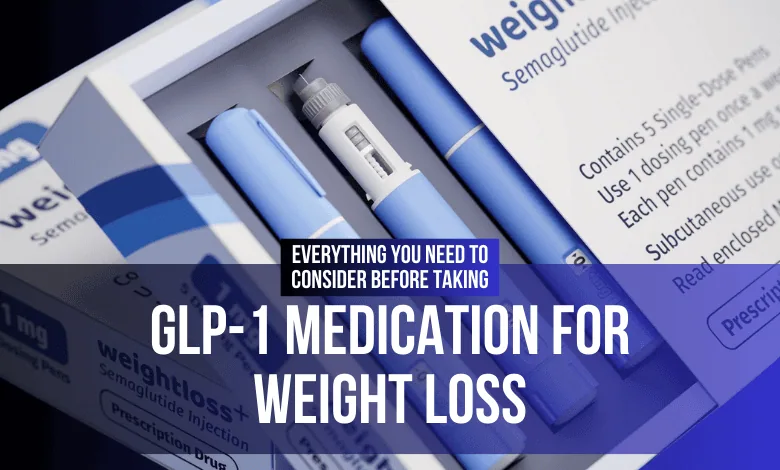Everything You Need To Consider Before Taking GLP-1 Medication For Weight Loss

GLP-1 (glucagon-like peptide-1) receptor agonists have gained widespread attention as a promising solution for weight loss. Originally developed as a treatment for type 2 diabetes, these medications have been shown to massively reduce body weight by curbing appetite, slowing digestion, and regulating blood sugar levels. However, before starting a GLP-1 medication for weight loss, there are several critical factors to consider.
Understanding How GLP-1 Medications Work
GLP-1 receptor agonists, such as semaglutide (Ozempic, Wegovy) and liraglutide (Saxenda), mimic a hormone in the body that influences insulin production and appetite regulation. By slowing gastric emptying and enhancing the feeling of fullness, these medications help individuals consume fewer calories, leading to weight loss over time.
Who Is a Good Candidate for GLP-1 Medications?
GLP-1 medications are typically recommended for individuals with a BMI (body mass index) of 30 or more (classed as obese) or those with a BMI of 27 or above who also have weight-related health problems like type 2 diabetes, hypertension, or high cholesterol. Before starting the medication, consulting a medical weight loss clinic or healthcare provider is essential to determine whether GLP-1 treatment is a safe and suitable option for you.
Potential Side Effects and Risks
Like any medication, GLP-1 receptor agonists come with potential side effects. Common side effects include:
- Nausea
- Vomiting
- Diarrhea or constipation
- Decreased appetite
- Fatigue
In rare instances, more severe side effects might come about, including pancreatitis, gallbladder disease, or kidney problems. Additionally, these medications are not recommended for individuals that have a history of thyroid cancer or multiple endocrine neoplasia syndrome type 2 (MEN2).
Cost and Insurance Coverage
One of the biggest barriers to using GLP-1 medications for weight loss is the cost. These medications can be expensive without insurance coverage, sometimes exceeding $1,000 per month. Some insurance plans may cover them, but this often requires prior authorization or proof of medical necessity. Speaking with your provider about coverage options can help determine the financial feasibility of treatment.
Commitment to Lifestyle Changes
GLP-1 medications are most effective when mixed with a detailed weight management plan, including a healthy diet and regular physical activity. While these medications can aid weight loss, they should not be considered a standalone solution. Long-term success requires lifestyle modifications to maintain results once treatment is discontinued.
Duration of Treatment and Long-Term Considerations
Weight loss achieved with GLP-1 medications is often gradual, with studies showing an average loss of 10-15% of body weight over a year. However, stopping the medication may lead to weight regain. Some people may need to stay on the medication long-term, while others transition to weight maintenance strategies under medical supervision.
Final Thoughts
GLP-1 medications can be a game-changer for individuals struggling with obesity, but they are not a one-size-fits-all solution. Before starting treatment, weighing the benefits and risks, exploring affordability, and committing to lifestyle changes is crucial. Speaking to a healthcare provider can help you make an informed choice and develop a personalized plan for achieving and maintaining a healthy weight.






